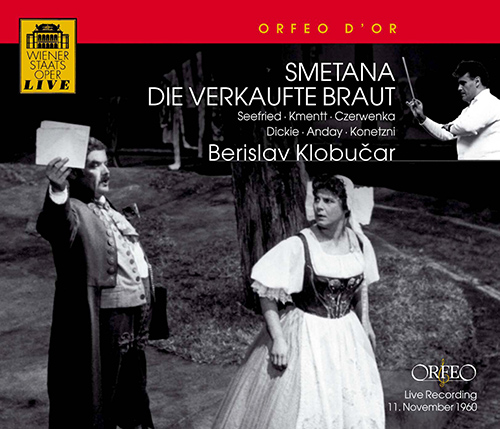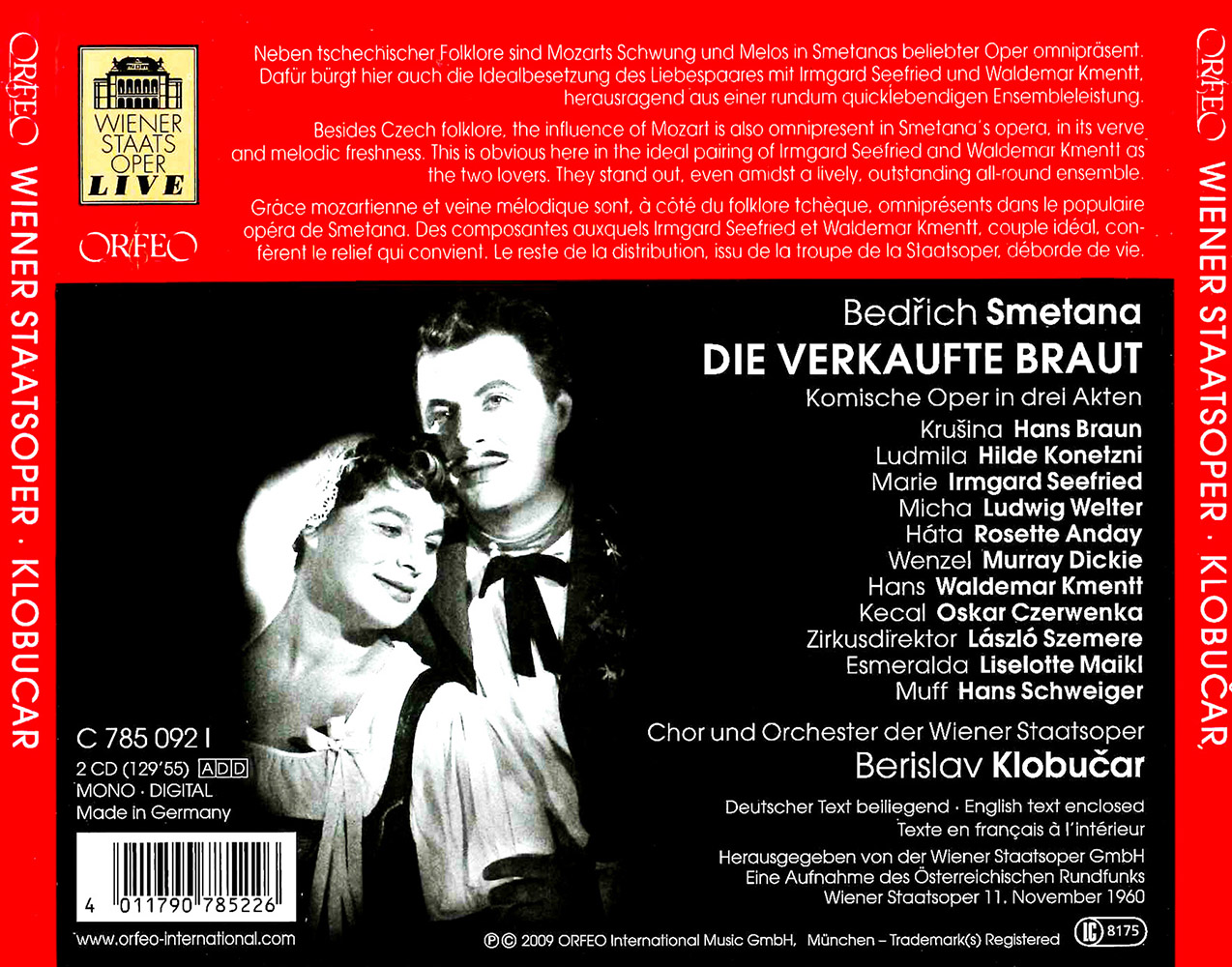Die verkaufte Braut
Vienna has played an important role in the performance history of Smetana’s The Bartered Bride ever since the work achieved its international breakthrough in the city at the time of the 1892 World Fair. Performed in German, it has long been a regular part of Vienna’s mainstream operatic repertory. In 1959, for example, Günther Rennert’s new production at the State Opera went on to achieve cult status, enjoying a grand total of ninety performances in all. In 1960 this production was captured by the microphones and recording equipment of Austrian Radio in a performance that immortalized the interpretations of the original principals from 1959. The cast was headed by Irmgard Seefried, a great favourite with Viennese audiences and one whose natural musicianship still seems particularly well suited to the character of Maøenka, or Marie as she is always known in German-language performances of the piece. At the time of this recording she could already look back on a stage career lasting two whole decades, and yet she had been able to retain the youthful freshness of her tone – an indispensable prerequisite for any successful interpretation of this role. The other half of this dream couple was Waldemar Kmentt as Jeník, or Hans, one of the roles with which the Austrian tenor was rightly most closely associated. With his dark-toned tenor voice, vivid diction and radiant top notes, he provides a wholly convincing portrayal of the youthful lover who is also a cunning gambler. The tragicomedy of his stuttering stepbrother is well caught by Murray Dickie with both skill and an equally beautiful tone, avoiding all sense of buffo excess. That the self-infatuated and vainglorious marriage broker Kecal is bent on palming off the bride on him, treating her as a mere object, seems entirely plausible when the role is played by another Viennese operatic institution, the distinguished Upper Austrian bass Oskar Czerwenka, an outstanding singing actor who invests the part with an altogether unmistakable profile. Even the smaller roles are cast from strength by singers of the calibre of Hilde Konetzni, Rosette Anday and László Szemere, all of whom milk their brief scenes for all that they are worth. A lively and yet always well-disciplined performance is further guaranteed by the Chorus and Orchestra of the Vienna State Opera under the direction of Berislav Klobuèar, who, often criminally undervalued, presided genially over countless repertory performances in Vienna.

















